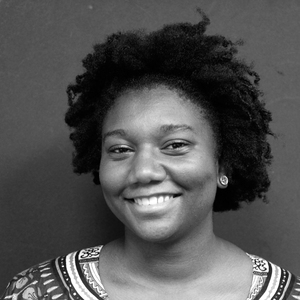Crockett: Ebony cover shows difficult relationship between black community, Bill Cosby
As allegations of Bill Cosby drugging and sexually assaulting women continue to surface, many people feel they cannot watch “The Cosby Show” without a bitter taste in their mouth. And publications are reflecting similar sentiments.
The November issue of Ebony magazine features a picture of The Huxtables, starring Heathcliff “Cliff” Huxtable, played by Cosby, a doting dad and successful doctor, seated with his on-screen family. But the controversy lies in the shattered glass over the image of Cosby’s face, speaking volumes to the black community in a way other publications are not able to.
The release of the magazine cover was directed specifically to people in the black community considering that Ebony caters to a black audience. This is particularly powerful because many people felt an ownership and protectiveness over Cosby, as he invited the entire world into the lives of a black family. This hadn’t been done in such an authentic and positive way until the show first aired in 1984.
It is for this reason that many people in the black community are at odds with the demonization of Cosby.
It can be difficult to separate the man from the myth. Similar sentiments are seen throughout pop culture and history. Woody Allen, for example, a famous actor, comedian and playwright, was accused of sexually abusing his adopted daughter. Actor Stephen Collins, who played the father on the hit ‘90’s show “7th Heaven,” confessed to molesting children, according to Time magazine.
As these allegations emerged, many people realized that even though they saw someone on the television screen each week, they didn’t truly know these actors as people.
Like Ebony, New York magazine took a controversial approach in July of addressing the Cosby scandal. The magazine’s cover showed 35 women who have accused Cosby of assault, facing the camera with a somber look on their face. There was an empty chair pictured next to the last woman, representing Cosby’s accusers who were not photographed and, ultimately, all women who have been sexually assaulted.
But what sets Ebony apart from the now-famous cover is the fact that it’s directly speaking to the black community. With a controversial image of Cosby on its cover, the magazine hits home and acknowledges the complicated relationship black people now feel toward Cosby.
Since the photo for the controversial November cover was revealed by Ebony, it has been met with backlash. Though open to interpretation, the cover is symbolic of the tarnished reputation of Cosby and connects his television character to the person he is in real life, inferring that Mr. Huxtable was not who we thought he was.
But Cosby’s empire of family-friendly shows, his activism and his defenders do not negate the emotional impact and influence he’s had on people, especially in the black community. These allegations cannot be silenced, and Ebony’s cover is a reminder of the shadow that will forever linger over his career.
Elaina Crockett is a senior television, radio and film major and African American studies minor. Her column appears weekly. She can be reached at [email protected].
Published on October 25, 2015 at 11:54 pm





